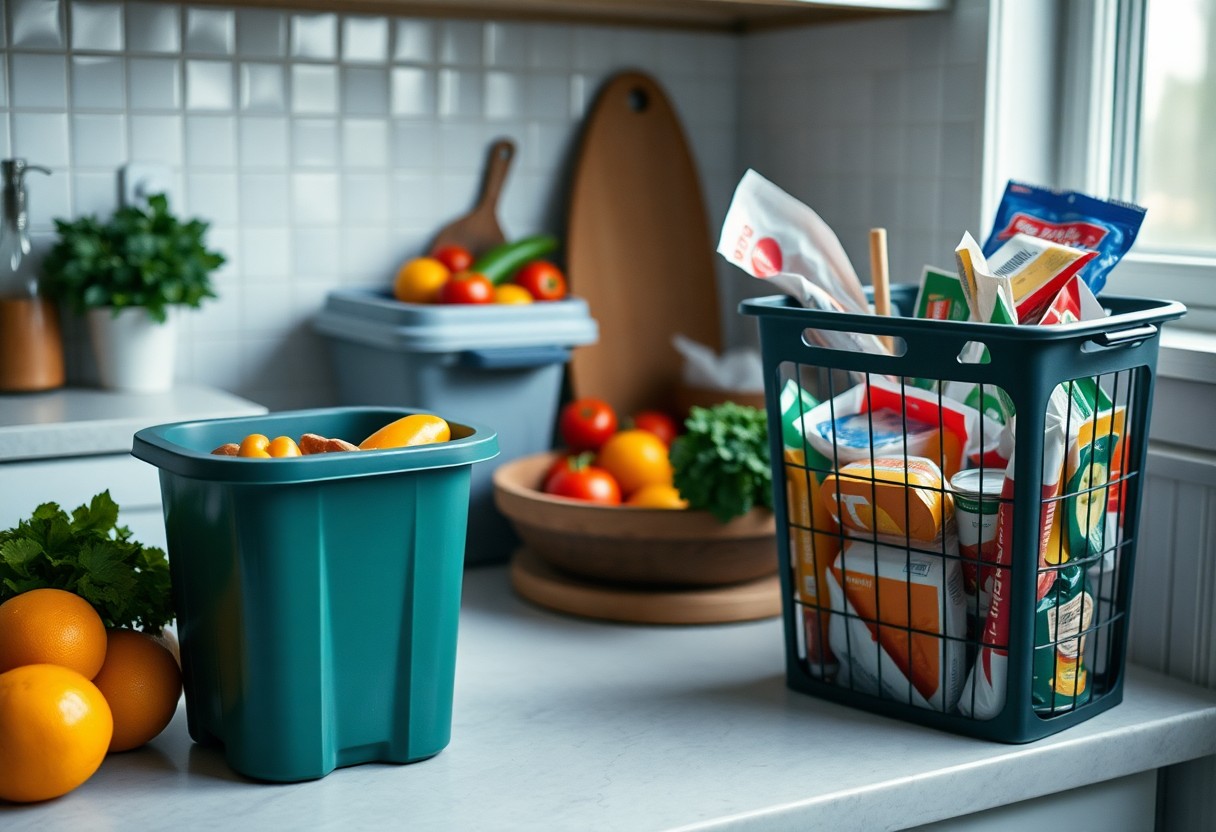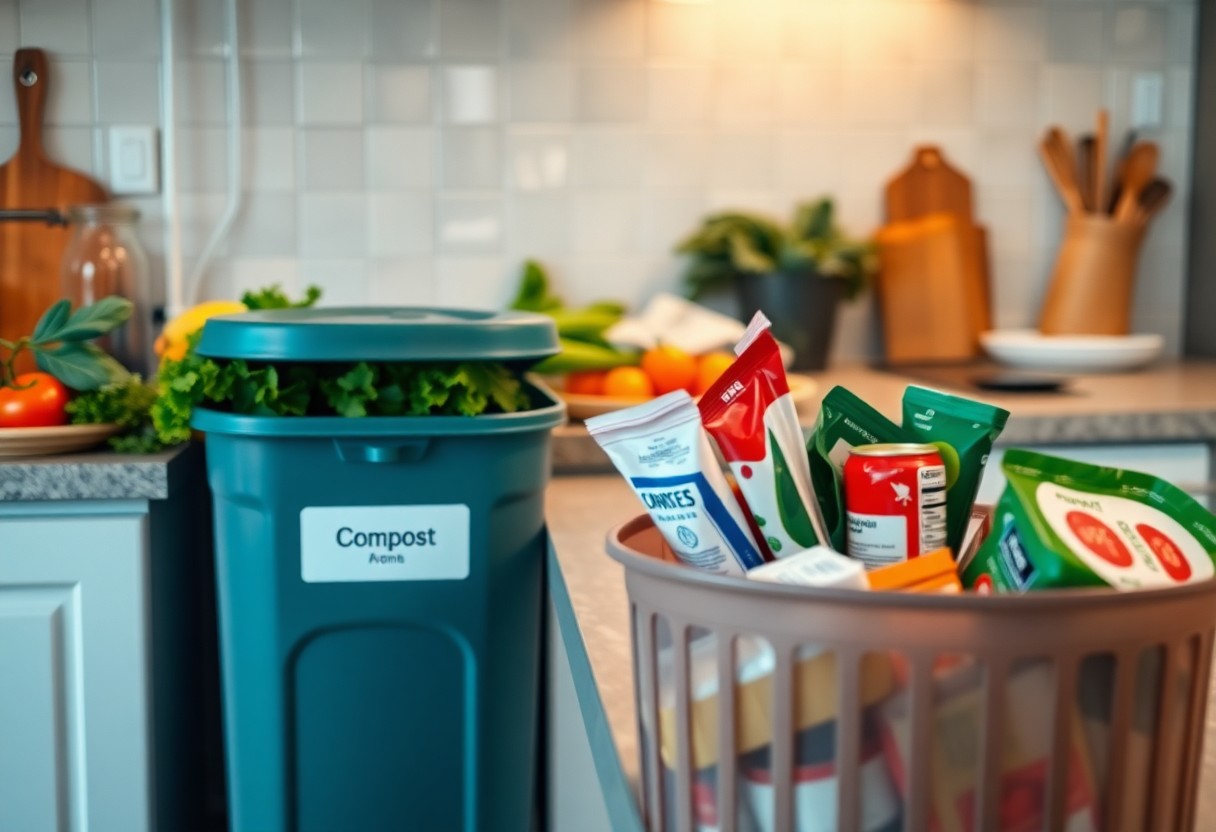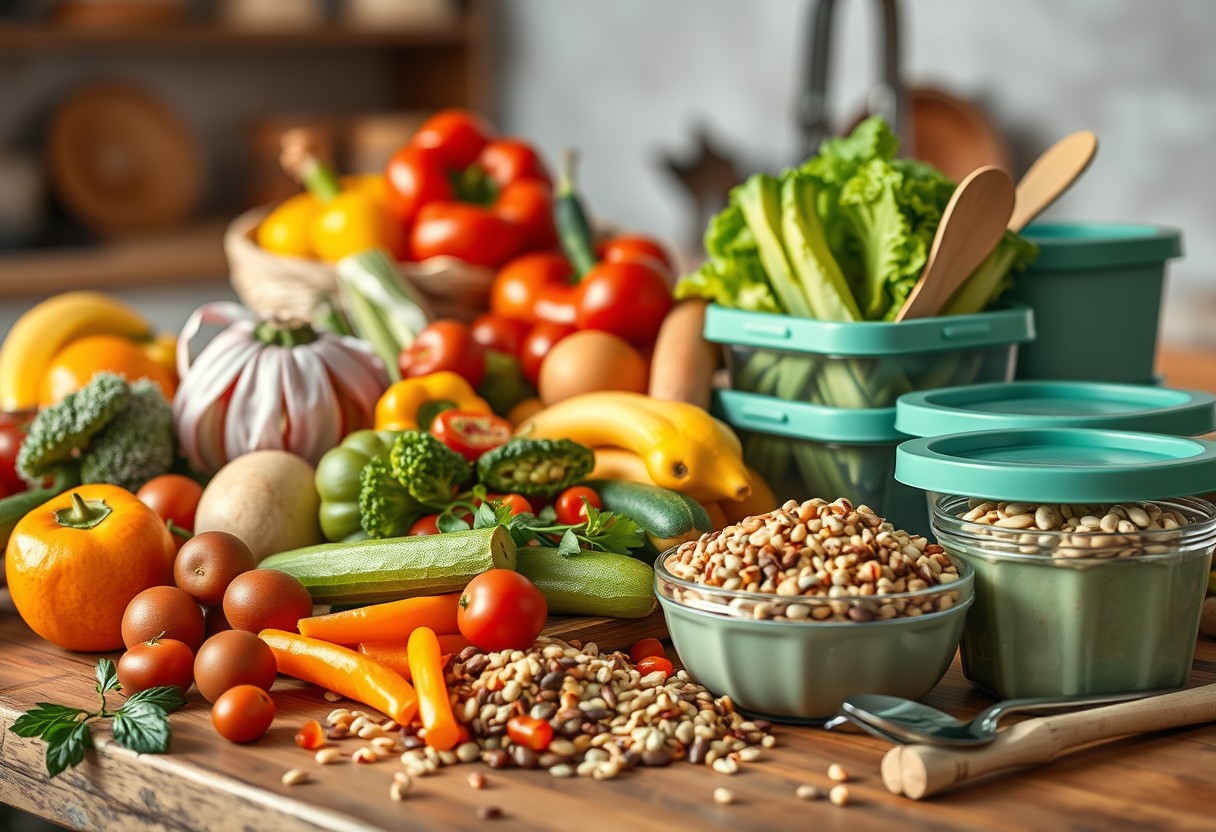Most households are guilty of wasting food, but you can easily change that by adopting a few simple strategies. By being mindful of your shopping habits, meal planning, and food storage, you can minimize waste and save money in the process. This blog post will guide you through practical steps you can take to effectively reduce food waste in your kitchen, ensuring that every ingredient is utilized thoughtfully. Let’s explore how you can make a positive impact on both your budget and the environment.
Understanding Food Waste
The issue of food waste affects everyone and encompasses all levels of the food supply chain, from production to consumption. You can make a difference by learning more about how to minimize waste in your kitchen. Start with practical strategies outlined in this resourceful guide on 10 Ways to Reduce Food Waste.
The Impact of Food Waste on the Environment
After food waste decomposes in landfills, it produces methane, a greenhouse gas that significantly contributes to climate change. By understanding the environmental implications, you can adopt habits that reduce waste, leading to a healthier planet.
Economic Consequences of Food Waste
Food waste not only impacts the environment but also presents significant economic challenges. You may not realize that wasted food costs millions of dollars each year, affecting food prices and driving up costs for consumers.
Indeed, food waste has far-reaching effects on the economy, as it strains resources used in production, transportation, and disposal. By taking action to reduce waste, you can save money, support local economies, and encourage more sustainable practices in the food industry. Every small change in your consumption habits can contribute to a larger shift towards efficiency and sustainability.
1. Plan meals to avoid unnecessary purchases.
2. Store leftovers properly for longer shelf life.
3. Use a shopping list to limit impulse buys.
4. Compost food scraps instead of throwing away.
5. Share excess food with neighbors or local shelters.
6. Educate family about responsible food consumption choices.
Practical Steps for Reducing Food Waste
You can take actionable steps to significantly reduce food waste in your daily life. By making small adjustments in your routines and habits, such as meal planning and efficient food storage, you can minimize excess food and make the most of what you have. Start by reflecting on your purchasing habits and the way you handle leftovers, paving the way for a more sustainable and efficient food experience.
Meal Planning and Preparation
Above all, meal planning helps you use ingredients efficiently and avoid impulse purchases. By creating weekly menus and shopping lists based on what you already have, you can ensure that you only buy what you need, reducing the chance of uneaten food spoiling in your fridge.
Proper Food Storage Techniques
Across your kitchen, implementing proper food storage techniques is necessary for prolonging the life of your groceries. Using appropriate containers, organizing your fridge effectively, and understanding expiration dates can help keep your food fresh and minimize waste.
Waste can arise from improper food storage practices, leading to spoilage and unnecessary trash. For instance, make sure fruits and vegetables are stored in the right conditions; some items do better in the fridge, while others thrive at room temperature. Airtight containers can keep dry goods fresh and protect leftovers from going bad. By taking the time to learn about specific storage needs, you can extend the shelf life of your food and considerably decrease waste.
Shopping Smart
Not only does shopping smart save you money, but it also significantly reduces food waste. When you make informed decisions at the grocery store, you can avoid overbuying and ensure you choose only what you need. For practical advice, check out these 7 ways to reduce food waste.
Creating a Shopping List
Around 40% of food waste occurs because of unplanned purchases. By creating a detailed shopping list before you head to the store, you ensure you buy only what you need. This minimizes impulse buying and helps keep your pantry and fridge organized, leading to less food spoilage.
Understanding Expiration Dates
Among the key factors contributing to food waste are misunderstandings about expiration dates. Many people mistakenly throw away food that is still safe to consume simply because it’s past the printed date.
In fact, many products are still perfectly edible after their expiration dates, particularly items labeled with “best by,” “sell by,” or “use by.” These dates often indicate peak freshness rather than safety. Familiarizing yourself with these terms can help you make better decisions, ensuring your food lasts longer and reducing unnecessary waste in your kitchen. Always trust your senses—if it looks, smells, and tastes good, it’s likely still safe to enjoy.
Composting as a Solution
Now is the perfect time to consider composting as an effective solution for reducing food waste. By turning your kitchen scraps into nutrient-rich compost, you not only minimize landfill waste, but also enrich your garden soil. It’s a simple and rewarding process that benefits both your home and the environment.
Benefits of Composting
To start, composting significantly reduces the amount of organic waste that ends up in landfills, cutting down on harmful greenhouse gas emissions. It also helps create a sustainable source of nutrient-dense soil for your garden, enhancing plant growth while saving you money on fertilizers.
How to Start Composting at Home
For beginners, starting a compost pile is easy and manageable. Gather organic materials like fruit and vegetable scraps, coffee grounds, eggshells, and yard waste. Choose a designated spot in your yard or use a compost bin to collect these items.
Composting turns your organic waste into valuable resources. Begin by layering green materials like fruit scraps with brown materials such as dry leaves. Maintain a balance and keep the pile moist, turning it regularly to aerate. In weeks to months, your compost will decompose into a dark, crumbly substance, perfect for enriching your garden or potted plants. It’s an eco-friendly process that can make a significant impact on your waste footprint.

Educating Yourself and Others
Many individuals overlook the impact of food waste on the environment and economy. By educating yourself about the statistics and consequences of wasted food, you can take actionable steps in your own life and share this knowledge with those around you. Use resources like books, documentaries, and online courses to deepen your understanding, allowing you to inspire friends and family to join the movement towards reducing food waste.
Resources for Food Waste Reduction
Beside educating yourself, you can access numerous resources dedicated to food waste reduction. Websites like the EPA and Zero Waste Home provide tips, statistics, and strategies tailored to different lifestyles. Local extension services often offer workshops or guides that help you learn practical skills, such as meal planning and composting, to minimize your waste effectively.
Engaging Your Community
Before submerging into initiatives to reduce food waste, consider how you can engage your community. Collaborating with local organizations, schools, and farmers’ markets creates a platform for spreading awareness and implementing food waste reduction strategies collectively.
This engagement can take many forms—from organizing community workshops on composting to starting a neighborhood food-sharing program. By rallying your friends, neighbors, and local leaders, you can create a collective effort that fosters sustainable practices and builds a stronger community connection. By working together, you amplify your impact and make substantial strides towards minimizing food waste in your area.

Leveraging Technology
Once again, technology comes to the rescue in your quest to reduce food waste. You can utilize various digital tools that make tracking and managing your food inventory a breeze. For more practical tips, check out 25 Ways to Reduce Food Waste. With the help of these technologies, you can analyze your habits and make informed decisions that lead to less waste in your kitchen.
Apps and Tools for Monitoring Food Waste
After you decide to take action, consider downloading apps designed to help you monitor your food waste. These applications can track what you buy, how much of it gets used, and what ultimately goes to waste. By keeping an eye on this data, you can start identifying patterns in your purchasing and cooking habits, allowing you to adapt accordingly and minimize unnecessary waste.
Online Platforms for Food Sharing
Platforms that facilitate food sharing are an effective way to redistribute excess food within your community. You can engage with these resources to connect with neighbors or local food banks, ensuring that your surplus food reaches those in need rather than ending up in the trash.
In fact, many communities host online platforms that specialize in food sharing, offering you the opportunity to post available items and browse listings from others. These networks not only reduce waste but also foster community connections, allowing you to help others while also benefiting from surplus food in your area. Embrace these tools to transform your excess into a shared resource that supports your neighbors.
Final Words
On the whole, you can implement food waste reduction tips by starting with small, manageable steps like planning your meals, making a shopping list, and utilizing leftovers creatively. Monitor your food storage practices to extend freshness and consider composting to minimize waste impact. Additionally, educate yourself about portion sizes and involve your family in the effort to make it a collective habit. By integrating these practices into your daily routine, you significantly contribute to reducing food waste and promoting a sustainable lifestyle.



